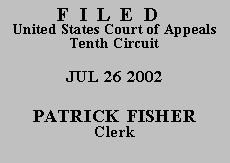

| JAMES RICKEY SMITH, |
|
| v. | |
| RON WARD,
Respondent - Appellee.
|
James Rickey Smith, a prisoner in the custody of the Oklahoma Department of Corrections proceeding pro se, seeks to appeal the district court's order dismissing his petition for a writ of habeas corpus (filed pursuant to 28 U.S.C. § 2254) for lack of subject matter jurisdiction. Mr. Smith also seeks to appeal the district court's order denying his motion to alter or amend the judgment. He has moved to proceed in forma pauperis.
In order to proceed in forma pauperis in this appeal, Mr. Smith "must show a financial inability to pay the required filing fees and the existence of a reasoned, nonfrivolous argument on the law and facts in support of the issues raised on appeal." DeBardeleben v. Quinlan, 937 F.2d 502, 505 (10th Cir. 1991). In order to receive a certificate of appealability (which Mr. Smith must obtain in order to prosecute this appeal), Mr. Smith must make "a substantial showing of the denial of a constitutional right." 28 U.S.C. § 2253(c)(2). Mr. Smith may make this showing by demonstrating that the issues that he raises are debatable among jurists, that a court could resolve the issues differently, or that the questions presented deserve further proceedings. See Slack v. McDaniel, 529 U.S. 473, 483-84 (2000).
In the district court proceedings, Mr. Smith challenged his 1981 conviction for Burglary in the Second Degree in the District Court of Oklahoma County, case number CRF-81-3994. Mr. Smith argued that, in the sentencing proceedings in the 1981 case, the court failed to inform him that he had a constitutional right to have appellate counsel appointed if he was indigent.
Mr. Smith was sentenced to two years' incarceration for the 1981 burglary offense, with one year suspended. Although he has now been discharged from that sentence, Mr. Smith is now incarcerated on other offenses that he does not directly challenge here. Instead, Mr. Smith apparently alleges that the 1981 conviction affected his subsequent sentences and that he is thus entitled to habeas relief.
In dismissing Mr. Smith's petition, the district court relied on Lackwanna County Dist. Attorney v. Coss, 531 U.S. 923 (2001). There, the Supreme Court held that:
once a state conviction is no longer open to direct or collateral attack in its own right because the defendant failed to pursue those remedies while they were available (or because the defendant did so unsuccessfully), the conviction may be regarded as conclusively valid. If that conviction is later used to enhance a criminal sentence, the defendant generally may not challenge the enhanced sentence through a petition under § 2254 on the ground that the prior conviction was unconstitutionally obtained.
Id. at 403 (internal citation omitted).
The Court did note certain limited exceptions to this general rule.
First, a state habeas petitioner may "challenge an enhanced sentenced on the basis that the prior conviction used to enhance the sentence was obtained where there was a failure to appoint counsel in violation of the Sixth Amendment." Id. at 404. Additionally, the court suggested that habeas relief may be warranted if a state court has, without justification, refused to rule on a constitutional claim, or if, after the time for direct appeal and collateral review has expired, the petitioner obtains compelling and previously unavailable evidence of actual innocence. Id. at 405.
As to the challenge to the 1981 burglary conviction, the district court noted that the state court record revealed that Mr. Smith was represented by counsel-- Mr. John Connelly. See Rec. doc. 10, Ex. A (guilty plea and sentencing forms signed by Mr. Connelly). Thus, the Lackwanna exception allowing challenges to uncounseled convictions was inapplicable.
We agree with the district court's analysis. As the district court observed, neither the fact that the "summary of facts" form completed at the sentencing hearing contains a blank space under the question "Is Mr. Connelly your lawyer?" nor Mr. Smith's contention that he does not remember whether Mr. Connelly attended the sentencing proceeding raises a substantial question as to whether Mr. Smith was denied counsel in the 1981 case.
Accordingly, we DENY Mr. Smith's motion to proceed in forma pauperis, we DENY Mr. Smith's application for a certificate of appealability, and we DISMISS this appeal.(1)
Entered for the Court,
Robert H. Henry
Circuit Judge
*. This order and judgment is not binding precedent, except under the doctrines of res judicata, collateral estoppel, and law of the case. The court generally disfavors the citation of orders and judgments; nevertheless, an order and judgment may be cited under the terms and conditions of 10th Cir. R. 36.3.
1. In light of the fact that the district court's disposition of this case is clearly supported by the record and the applicable law, we DENY Mr. Smith's Second Motion to Appoint Attorney and his Motion to Supplement the Record.